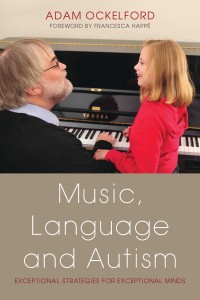 After many hours of the same dull drone – auditory chewing gum that has long since lost its flavour or interest – there is a sudden, almost imperceptible change in the humming of the plane’s engines. I glance outside and see that, at last, we are over the Nevada desert. Only an hour or so now until we hit Los Angeles.
After many hours of the same dull drone – auditory chewing gum that has long since lost its flavour or interest – there is a sudden, almost imperceptible change in the humming of the plane’s engines. I glance outside and see that, at last, we are over the Nevada desert. Only an hour or so now until we hit Los Angeles.
The man sitting next to me – noticeably upright in his seat – stiffens slightly as he hears the tiny deviation in sound.
‘F sharp’, he intones. ‘It’s F sharp, Adam.’
He leans towards me, demanding a response, and the sun bounces off his trademark Prada sunglasses, but without penetrating the world of darkness beneath.
‘Yes, Derek’, I reply, ‘We’ll soon be landing at LAX.’
‘Landing at LAX’, he echoes, apparently relishing the sound of the words – and their import – in equal measure.
‘And I will see Dana, and I will play the piano’, he continues.
‘Yes, Derek.’ I offer the same reply again, the sound of my voice as much as the words offering a reassurance forged in a relationship spanning 28 years – as Derek’s teacher, mentor and friend. ‘You’ll play the piano.’
Repetition confers calm, a hint of a smile crosses Derek’s features, and he relaxes back in his seat.
* * *
Derek Paravicini – blind autistic savant, musician extraordinaire, learning disabled genius, unflagging companion – is on his way to California to perform in a series of concerts: grist to his globe-trotting mill.
For him, aeroplanes are one of life’s many mysteries: a series of awkward slopes and steps to be negotiated; well-meaning helping hands; a waft of warm, stale air; ‘doors to automatic and cross-check’; the sound of the engines starting up. Soon the seat seems to move and bump about, then steadiness; a long, vibrating steadiness. Les Mis on the headphones – once, twice, three times?
At last, everything goes into reverse, and abruptly, we’re off the plane. Now there are new voices, new accents. A new hotel. Oatmeal instead of porridge for breakfast.
And … finally … the piano. At last, something familiar. Every note a close friend. The band plays the same as in England. The clapping is familiar too, though people seem to clap louder in America.
‘Good job, Derek!’ ‘Awesome!’ ‘Can you smile for the photo?’ Derek wrinkles his nose, and everyone laughs, infectiously. He catches the humour, and smiles as well. Music has worked its magic, as it always does.
* * *
Derek’s puzzling mixture of abilities and needs may be extreme, but spikey profiles like his are almost the norm among children and young people on the autism spectrum. And for around 5% of those with severe autism, music may be the key to unlock communication, shared attention and emotional understanding.
I explore these issues in my new book Music, Language and Autism: Exceptional Strategies for Exceptional Minds – not only looking at special talents like Derek’s, but suggesting ways in which music can support learning and development for all children with autism spectrum condition. The result is a radical re-think of pedagogical approaches for children with autism, which, since their inception, have tended to be dominated by visual materials in carefully controlled visual environments. Yet sound is crucial too, with the capacity to impact both negatively and positively.
Music, Language and Autism is intended to open the ears of teachers, parents and therapists to their children’s perception of the auditory landscapes that surround them. It becomes clear that music may be important for all of us, but for children on the autism spectrum, it is nothing less than essential brain food.
Adam Ockelford is the author of forthcoming title, Music, Language and Autism (2013) published by Jessica Kingsley Publishers.
Lovely! I hope to soon receive a copy of the book!
best, Dr. Dori